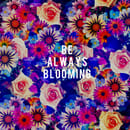Throughout the past few weeks, I’ve felt as if everyone I know is becoming romantically involved with someone else. My best friend from high school began skirting right around a relationship with another of her close friends, and each time they hang out there’s the tangibly floating question of “Will one of them kiss the other today?” When she FaceTimes me, they’re cuddling, they’re holding hands, they’re giving each other awkward, half-accidental forehead kisses. My younger brother, a newly-minted high school freshman, regularly walks to the corner gas station with his crush after school, and they avoid directly discussing the fact that they both know each likes the other. Another of my high school friends has fully entered her college’s casual dating scene, pursuing several friends-with-benefits situations; another of my Kenyon friends is in the in-between stage of starting a full-fledged relationship with someone else here.
I want to be happy for each of them. Largely, I am happy for each of them. Developing meaningful relationships that encourage emotional intimacy and personal growth is important, especially amongst the sheer uncertainty of teenaged life. I want them to have these outlets; romantic relationships can offer important supports and experiences that platonic friendships cannot (and vice versa!). But I also feel something entirely separate from happiness, something I entirely didn’t expect to feel: loneliness and jealousy.
I’ve been in a long-term relationship for almost two years now. I love and appreciate my significant other endlessly, and I would in no way sacrifice our relationship to pursue fleeting emotional feelings for someone else, but I’d be lying if I said I hadn’t occasionally missed the butterflies of beginning a new relationship. It’s weird to imagine not falling in love ever again, or even to imagine not falling in love again for a long period of time. As I watch seemingly everyone around me explore new relationships, I’m keenly aware that I will not be doing, and in some sense cannot do, the same.
When I began dating Will (my current significant other), it was the first healthy romantic experience I’d ever had. Every other crush of my life had ended poorly: the less they reciprocated my interest the more attached I became, until finally they slowly cut off communication with me and I clung on to the idea that they were the exact person I wanted. My crushes weren’t true romantic interests but rather psychological projections of my own deep uncertainty and existential discomfort. I reacted to long-term life stresses by liking people I knew were toxic because it was distracting: when I chose to attend a new high school with virtually no one else I knew, when I felt confined by fifteen-year-old angst and the helicopter parenting of my mother, when I first began to dread the college process and my impending future, and on. It was easier to like people I knew didn’t like me because the unsuccessful ending was inevitable. I always knew what was coming, and so I felt in control. I didn’t necessarily choose that consciously or willfully, but I was aware of what I was doing, and I never talked myself out of it. I didn’t need to. I didn’t want to.
I went on my first date with Will on a whim. Truthfully, I don’t think I could say I ever had a crush on them. Yet another of my romantic exploits had just exploded in my face, and I had decided I needed a change. Will seemed so safe. My feelings then progressed from friendship to love, and the rest—as they say—is history. In the aftermath that is our relationship now, I became convinced that our interactions could teach me everything I needed to know about a mature relationship. From this point forward, if we ever broke up, I would have the skills needed to choose more suitable, healthy crushes, ones that weren’t projections of my screwed-up psyche. I would flirt well, date responsibly, and attract other mature individuals that I could love through the put-togetherness that I would (obviously) exude. A glamorous, unrealistic fantasy, I’ll admit, but it was one I didn’t even recognize I had. It was an unconscious assumption, and I believed it fiercely.
Why my friends’ new relationships make me feel so uncomfortable is that they’ve shattered that fantasy. In offering advice and imagining myself in their situations, I’ve realized that I’m not all too different from the old, pre-Will self I used to be. One relationship, no matter how good that relationship is, can’t fix years of learned toxic behavioral patterns. Left to my own devices, I’ve realized I would fall straight back into those patterns—and I hate that.
Slowly (for personal growth is always a slow, back-and-forth process), I’m learning to change my coping strategies and become someone else. I don’t want to be the unstable girl who can’t let go of meaningless crushes. I don’t want to ruminate over things that don’t matter in an effort to avoid thinking about things that do matter. Recognizing that I have done this, and might one day do this again, is the first step of changing it, and I am—consciously, effortfully—changing it.


